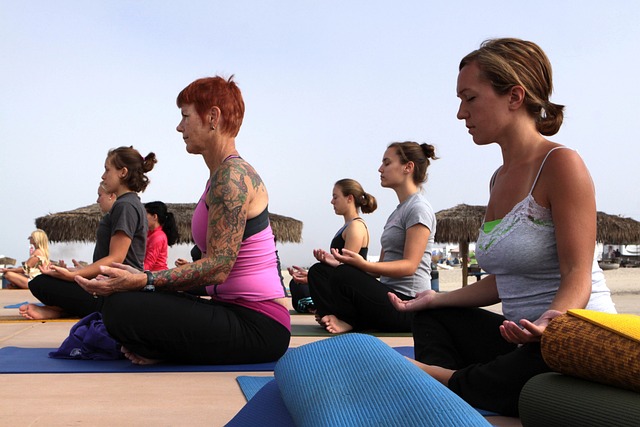Have you ever felt drained, overwhelmed, or even felt disrespected in a relationship? If so, you’re not alone. Many of us have experienced this sting. But, what if I told you that there’s a tool you can use to protect your emotional, mental, and physical well-being? It’s called setting personal boundaries.
Personal boundaries are like invisible lines we draw around ourselves. They define who we are and how we want to be treated by others. In relationships, whether they’re romantic, familial, or platonic, these personal boundaries help us communicate our needs, values, and limits. And, trust me setting personal boundaries in relationships is essential.
Without clear boundaries, relationships can become a source of confusion, hurt, and frustration. Setting personal boundaries is a key step in ensuring that peace remains intact, especially when interacting with others. Let’s look a some of the benefits.
The benefits of setting personal boundaries in relationships
Setting boundaries isn’t just about protecting ourselves; it’s about nurturing relationships where both parties feel understood and respected. What a world of difference that can make!
A. Preservation of self-worth and self-respect:
First and foremost, by setting boundaries, we signal to ourselves (and others) that we matter. It’s a powerful affirmation that says, “I value and respect myself enough to recognize what’s good for me and what’s not.”
B. Reduces stress and anxiety:
Ever felt that knot in your stomach when someone crosses a line? That’s stress and anxiety building up. Personal boundaries help reduce those feelings by providing clarity about what’s acceptable and what’s not.
C. Encourages mutual respect and understanding:
When we set boundaries, we also set expectations. This helps in creating a balanced relationship where both individuals know where they stand. It’s like saying, “This is where I end, and you begin.”
D. Establishes clear communication:
No more guessing games or reading between the lines. When boundaries are clearly communicated, there’s less room for misunderstandings.
E. Prevents feelings of resentment:
Continuously compromising beyond our comfort zone can build resentment. Boundaries prevent that buildup by ensuring both sides are on the same page.
Identifying Your Personal Boundaries
Identifying personal boundaries isn’t a one-time process. As we grow and change, so do our boundaries. The key is to stay in tune with yourself and regularly check-in. But how do you even begin to figure out your boundaries? Here are some steps to guide you:
A. Reflect on past experiences and lessons learned:
Start by thinking about moments in past relationships where you felt uncomfortable, disrespected, or overwhelmed. What caused those feelings? Those triggers can help pinpoint boundaries you might need to set.
B. Understand your values and beliefs:
Each of us has core beliefs that guide our actions and reactions. Maybe you highly value alone time, or perhaps you prioritize family gatherings. Recognizing these values can help you determine boundaries that align with them.
C. Listen to your emotions and gut feelings:
Your body often knows before your mind does. If something doesn’t sit right with you, or if you feel that twinge in your gut, it might be a sign that a boundary is being crossed.
D. Recognize the difference between compromise and self-sacrifice:
It’s healthy to compromise in relationships. But if you find you’re constantly giving in or feel like you’re losing a part of yourself, it’s time to reassess and set clearer boundaries.
How to Communicate Your Personal Boundaries Clearly
After identifying your boundaries, the next thing is for you to communicate them effectively. Communication is the bridge between knowing your boundaries and ensuring they’re respected. It can be a delicate balance, but with practice and patience, it’s absolutely achievable. Here’s how to get your point across without creating conflict:
A. Be direct and assertive, not aggressive:
It’s important to remember that setting personal boundaries in relationships is not about controlling others but about taking care of ourselves. Speak confidently about your needs without attacking or blaming them.
B. Use “I” statements to express feelings and needs:
For example, “I feel overwhelmed when we spend every weekend together. I need one weekend a month to recharge on my own.” This approach focuses on your emotions and needs rather than placing blame.
C. Practice active listening:
When discussing setting personal boundaries in relationships, ensure you’re not just talking but also listening. Sometimes, the other person might have concerns or boundaries of their own.
Dealing with Personal Boundary Violations
Relationships are a complex thing. Boundary violations can be challenging to address, especially when emotions are high. While setting and communicating your boundaries is crucial, equally important is knowing how to handle situations when those personal boundaries are violated.
A. Recognizing signs of overstepping:
Before you can address a personal boundary violation, you must first recognize it. Signs might include feelings of discomfort, anxiety, or resentment. Listen to those feelings; they’re cues that something is amiss.
B. Being consistent in enforcing your boundaries:
Consistency is key. If you let a personal boundary slide once, it might be harder to uphold it the next time. Remember, it’s okay to remind someone of your boundaries if they forget.
C. Seeking external support or counseling when necessary:
If personal boundary violations continue or escalate, it may be beneficial to seek counseling or support groups. Sometimes an external perspective can provide clarity and strategies you hadn’t considered.
D. Re-evaluating relationships that consistently disrespect boundaries:
It’s painful to consider, but if someone consistently disrespects your personal boundaries, it might be time to reevaluate the relationship’s health and future. Remember, relationships should enhance your well-being, not detract from it.
Self-awareness and Self-growth
Life is ever-changing, and so are we. As we go through different phases, experiences, and learnings, our perception of what we want, and need, changes, This naturally influences our boundaries. Just as we evolve, so do our boundaries. What felt like a necessity in our twenties might shift in our thirties and beyond. It’s okay for boundaries to change; it’s a reflection of our growth and new understandings.
Conclusion
To reiterate, setting boundaries isn’t about shutting people out or being rigid. It’s about recognizing our self-worth, understanding our needs, and creating an environment where both we and our loved ones can thrive. It’s about fostering connections that celebrate our individualities while nurturing the shared bond.
I encourage you reading this to not only recognize the importance of boundaries but to actively engage in setting, communicating, and respecting them in your relationships. Remember, it’s never too late to start, and every step taken is a stride towards healthier, more fulfilling interactions.




